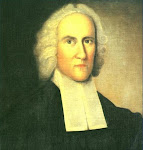New York Times columnist Ross Douthat has shown again in today’s piece why he is one of the most insightful political and cultural observers in America today. His column concerns last week’s comments by television news commentator Brit Hume that the golfer Tiger Woods, whose sins and problems are well known, should turn to Christianity for forgiveness and salvation. Hume’s comments were as follows:
He’s said to be a Buddhist; I don’t think that faith offers the kind of forgiveness and redemption that is offered by the Christian faith. So my message to Tiger would be, “Tiger, turn to the Christian faith, and you can make a total recovery and be a great example to the world.”[1]
The response of America’s cultural elites to Hume’s comments was swift and angry. Douthat notes in today’s column that these responses have included denunciation of Hume and his remarks in no uncertain terms.
What Douthat does best, however, is note the shift in American culture from religious pluralism to what I would call radical religious pluralism. Religious pluralism is the classic American idea that under the First Amendment to our Constitution, every American should have the right to practice his or her religious convictions freely, and every religion has the right to compete with every other religion for adherents in the public square. While we should never force our religious convictions on any other person, we should be able to argue those convictions before others. However, the shift to radical religious pluralism says to people of all faith convictions (especially to Christians) that we should keep our religious convictions to ourselves. Religious discourse has no place in the public square. As Douthat puts it into today’s column (“Let’s Talk about Faith,” accessible at www.nytimes.com/2010/01/11doutaht.html), “the admirable principle that nobody should be persecuted for their beliefs often blurs into the more illiberal idea that nobody should ever publicly criticize another religion. Or champion one’s own faith as an alternative. Or say anything whatsoever about religion, outside the privacy of church, synagogue or home.”
This is the difference between classic American religious pluralism and the modern version of radical religious pluralism. As Douthat notes in the closing sentences of his column, “the debate that Brit Hume kicked off a week ago is still worth having. Indeed, it’s the most important one there is.”

No comments:
Post a Comment